By : Luthfiyah Qonati, Activist of Indonesian Volunteer Society (MRI) Purwokerto, Central Java
Islamic teachings do not distinguish the obligation of da’wah only to men. However, this obligation is also given to Muslim women.
In general, Allah mentions in the verse:
وَلْتَكُنْ مِنْكُمْ أُمَّةٌ يَدْعُونَ إِلَى الْخَيْرِ وَيَأْمُرُونَ بِالْمَعْرُوفِ وَيَنْهَوْنَ عَنِ الْمُنْكَرِ وَأُولَئِكَ هُمُ الْمُفْلِحُونَ
Also Read: Verses of the Universe in Gaza: The Unyielding Light of Faith
Meaning: “And let there be among you a group of people who call to righteousness, enjoin what is right and forbid what is evil. And they are the lucky ones.” (Surah Ali Imran/3:104).
The verse generally shows that there is no difference between men and women in the obligation to preach. Both men and women have the duty to call or invite goodness and prevent evil.
In another verse Allah says:
يٰنِسَاۤءَ النَّبِيِّ لَسْتُنَّ كَاَحَدٍ مِّنَ النِّسَاۤءِ اِنِ اتَّقَيْتُنَّ فَلَا تَخْضَعْنَ بِالْقَوْلِ فَيَطْمَعَ الَّذِيْ فِيْ قَلْبِهٖ مَرَضٌ وَّقُلْنَ قَوْلًا مَّعْرُوْفًاۚ
Also Read: Prophet Sulaiman Alaihi Salam, the Greatest Muslim King of All Time
Meaning: “O wives of the Prophet! You are not like other women, if you are pious. So do not be submissive (lower your voice) in speaking so that the lust of the person who has a disease in his heart is aroused, and speak good words.” (Surah an-Nisa/4:32).
This verse guides the wives of the Prophet, then also to Muslim women, to always maintain piety, among others, by guarding from talks that arouse lust, and should say good words.
The attitude of maintaining piety by taking care of yourself for Muslim women, this is also part of da’wah, calling to the way of Allah.
Furthermore, Muslim women are certainly expected to be able to explain various kinds of sharia issues that are specifically related to women’s problems. Including if women are embarrassed to ask men on women’s special issues, of course this is the role of Muslim da’i.
Also Read: Imaam Yakhsyallah Mansur: Surah At-Tin Indicates the Command to Liberate Al-Aqsa
Meanwhile, currently there are not many Muslim women who become or want to become preachers like the countless number of men. Therefore, there should be a generation of continuation da’iyah from the Mulsimah, who will help other women in Shari’a issues related to women.
Whereas since the beginning of the development of Islam, Muslim women have an important role in the spread of Islamic da’wah. The first person who received the da’wah of the Prophet sallallaahu ‘alaihi wasallam was a woman, namely Khadijah bint Khuwailid.
It was Khadijah who made a major contribution to the Islamic da’wah in the early era of Islam during the time of the Prophet sallallaahu ‘Alaihi Wasallam at the expense of her life and property.
Besides Khadijah’s death, there was ‘Aisyah, the wife of the Prophet, who also had an important role in da’wah, especially as a place to ask questions, refer to knowledge, from various Islamic issues, both when the Prophet was still around and after the Prophet died.
Also Read: Imaam Yakhsyallah: Nurture Love for the Prophet, One Will Be with Whom One Loves
In the Qur’an, it is also mentioned a lot about women. Their role in society and religion is very large, starting from the family environment to the community in general. Their presence and role cannot be denied for the good of the people as a whole.
Therefore, the role of Muslim women today in the field of da’wah is very much needed. Many problems occur related to the duties and functions of women, both as wives, as mothers of their children and so on. All need the guidance of the da’iyah.
These da’iyah are expected to be an important part of the best social order (khoro ummah) in terms of self-existence in the work environment or in the community.
As Allah reminds in the Quran:
Also Read: Friday Sermon: Emulating the Firmness of the Prophet in Struggle
كُنْتُمْ خَيْرَ أُمَّةٍ أُخْرِجَتْ لِلنَّاسِ تَأْمُرُونَ بِالْمَعْرُوفِ وَتَنْهَوْنَ عَنِ الْمُنْكَرِ وَتُؤْمِنُونَ بِاللَّهِ وَلَوْ آمَنَ أَهْلُ الْكِتَابِ لَكَانَ خَيْرًا لَهُمْ مِنْهُمُ الْمُؤْمِنُونَ وَأَكْثَرُهُمُ الْفَاسِقُونَ
Meaning: You are the best people who were born for humans, enjoining what is right, and forbidding what is evil, and believing in Allah. If the People of the Book had believed, it would have been better for them; among them are believers, and most of them are ungodly. (Surah al-Imran/3:110).
The verse shows that the quality of Muslims lies in the aspect of faith and aspects of da’wah activities, namely in calling for goodness and preventing evil (amar ma’ruf nahi mungkar).
In the cultivation of this faith and da’wah activities, Muslim women have the first and foremost role in shaping generations and building civilization. As evidenced by Sayyidah Hajar, the mother of Prophet Ismail ‘Alaihis Salam in educating children, so that they are able to be patient servants of Allah when receiving Allah’s orders, including to be slaughtered.
Also Read: Imaam Yakhsyallah: Muslims Unity as Key to Victory of Islam
Therefore, we as Muslim women should not be indifferent or ignorant about the current state of religion and generation. We as Muslim women have an important role, as are the stories of women at the time of the Apostle who they also took part in Islamic da’wah.
It is also from the role of women that it can be either a society or a state. This is as stated in the expression:
الْمَرْأَةُ عِمَادُ الْبِلاَدِ إِذَا صَلُحَتْ صَلُحَتِ الْبِلاَدُ وَإِذَا فَسَدَتْ فَسَدَتِ الْبِلاَدُ
Meaning: “Women are the pillars of the state, if women are good then the country will be good and if women are damaged, then a country will also be damaged.”
Also Read: Friday Sermon: Prophet Muhammad Is Not a Political Figure
Wallahu A’lam Bishshawab. (T/RE1)
Mi’raj News Agency (MINA)
Also Read: Without Knowledge, Congregation Is Merely a Crowd Without Direction






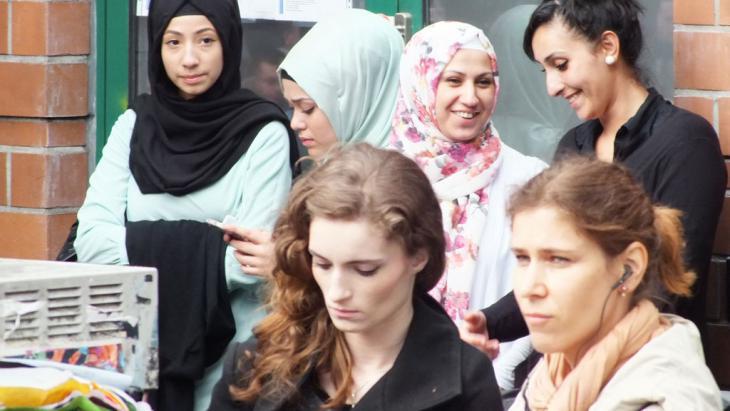









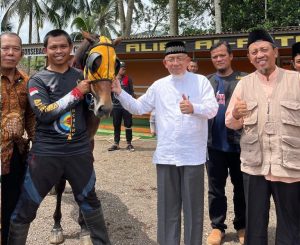
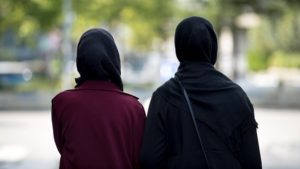
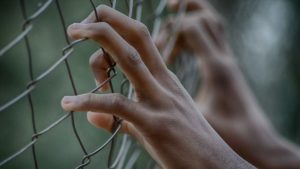
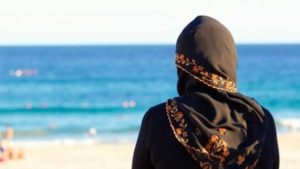
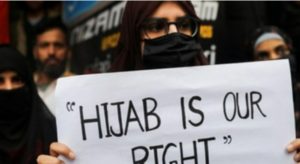
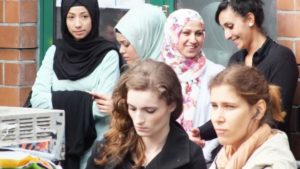













 Mina Indonesia
Mina Indonesia Mina Arabic
Mina Arabic